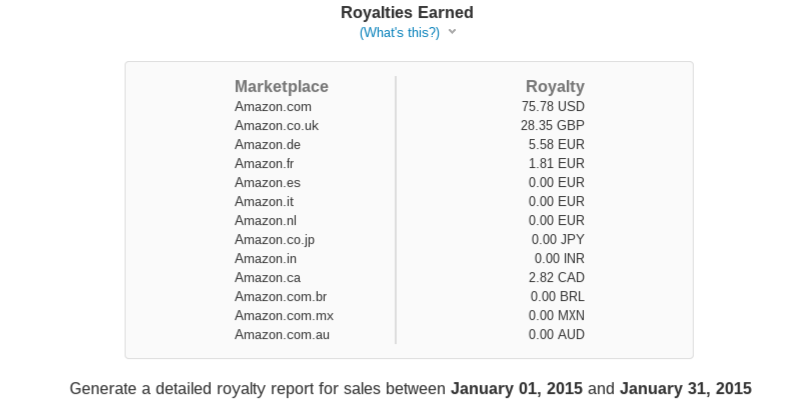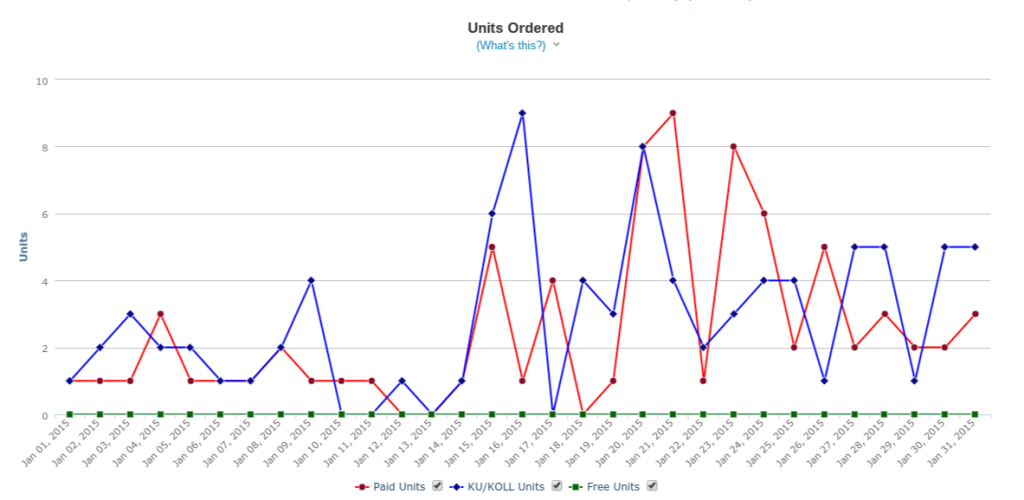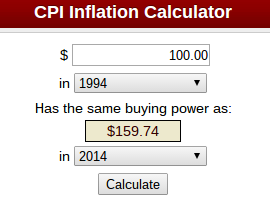Last y ear I had over $1,500 stolen from me. Clients never paid or just disappeared when presented with a bill. Most of it was from freelancing and copywriting, but a fairly significant portion, several hundred dollars, came from bloggers I know.
ear I had over $1,500 stolen from me. Clients never paid or just disappeared when presented with a bill. Most of it was from freelancing and copywriting, but a fairly significant portion, several hundred dollars, came from bloggers I know.
This made me really mad for quite some time. I didn’t answer emails, write posts, check Twitter, or even log into my site. Every time I thought about writing a new post I’d just get upset.
But my story isn’t unique. Other guys that I’ve talked to have had the exact same problem. Some of them are even out a small fortune.
Eventually I decided to stop being mad. To get over the anger I looked for some kind of lesson in my situation. And I found a crucial piece of information.
The biggest downside to working for someone else: control
Do you know what the worst part of working for someone else is? Lack of control. If your boss says “come in on Saturday,” you have to obey. If you don’t, someone else can easily take your place. There’s nothing you can use as leverage.
Affiliate marketing is basically a fancy term for being a salesman. You go out and sell someone else’s products. Then they pay you.
Except getting paid can be a real b*tch. I’ve read about guys who would make $5,000 in commissions only for the product’s owner to vanish. And it happens in the corporate world too. I remember listening to a Danger & Play podcast where the guest speaker was fired for outselling everyone else.
If you don’t own the product you don’t have control.
Whoever you work for (be that a corporation, private client, or eBook author) still controls how much you make. If they decide not to pay you there isn’t much you can do.
How I made $231.64 in nine hours

My monthly goal was to publish one book a week. Unfortunately, my computer’s graphics card went out and I was unable to see anything. As a result, I only put out three books. Each one took me roughly two hours to write and another hour to design the cover. That’s nine hours in total.
Since I’m still pretty new to the publishing game, I didn’t sell as many books as I was hoping (also, January is one of the slowest months for book sales) and my monetary goal of $400 was not met.
However, between Kindle borrows (which are calculated separately but generally pay out at $1.43 a pop) and sales, I still made $231.64. Not bad for a venture that I’m just getting into. That buys me about 231 servings of phat si-io, or a month’s worth of groceries. And since I only made $100 the month before, my income doubled. If I can keep increasing my earnings at the same rate, which would be fairly easy, I’ll be in the four figure club by April.
Making $200 means that you moved roughly six titles a day. And to sell those I didn’t have to do a thing. Once my books were up the money started trickling in.
While $231.64 might not sound like a lot, it’s almost enough to cover the mean student loan payment. In other words you could write some 11 page short stories and use the profits to pay off tuition. Additionally, my income averaged out to be $25 an hour. Since there were no input costs, sans a $10 monthly subscription to a stock photo site, everything was profit.
Lastly, my titles will generate money forever. Today is February 1st and I’ve already made five dollars. That’s like having someone slip you a couple bucks every few hours. It adds up over time.
How to scale a business
In my first month of writing eBooks I was unfocused. Each title had a different pen name and my content was all over the map. Some books sold well, others sold nothing.
For my second month I looked at the material that sold well and then built off it. I went from having a couple of pen names to just one, allowing me to build up a small following. If you look at my sales charts you’ll notice some pretty big spikes. These usually occurred when someone downloaded one of my books, liked it, and then downloaded the rest of my pen name’s catalog.
By having multiple products within the same niche I was able to go from selling one item to selling three or four.
The key improving sales is to create more content. That might mean a new eBook if you’re in the publishing business, or a new blog post if you’re affiliate marketing.
If you want to see a great example of more content, go to the grocery store and walk down the soda aisle. You’ll see 20 different flavors of Mountain Dew or Coke. They’re all in the same niche, but they give the buyer more options.
Selling eBooks is no different. Book #1 sells book #2 which sells book #3. While there is some variety, every product can’t be identical after all, everything falls under a certain category or niche. This way you can build up a consistent fan base.
Why blogging is not a good source of passive income
My family owns a large woodland area that can be logged for furniture and building materials. Every 30 or so years a logging company will come, chop down the trees and write a decent sized check. The last time they did this it paid for two more properties. This time it’s estimated that the trees will be worth $500,000.
Half a million dollars for doing nothing is true passive income.
Blogging is a people business. And people suck. If you don’t believe me, go talk to someone who owns a restaurant or other venture where they’re in direct contact with customers. Clients will try to get as much free stuff as possible without having to pay.
This problem only becomes worse with something like blogging, where you give away content for free. Without an entrance fee of some kind you attract a certain percentage of tire kickers and trolls. These people are usually in the minority of your readership, but they are incredibly annoying and will try to take up as much time as they possibly can.
These folks will literally copy your brand (something that’s happened to several people I know), harass you (happened to me on multiple occasions), hit you up for money (happened to me and several other people), or spam you with stupid questions.
I’ve talked to a lot of people who are more successful than me and most of them have mentioned that the best businesses require the least amount of human interaction. Dealing with people requires you to divert time and energy towards answering questions, explaining concepts, and defending yourself from complainers.
The three best forms of passive income
In the coming weeks I’ll be dropping data sheets on all kinds of revenue streams that I’ve fooled around with, from bonds to the stock market. However, right now I’m going to outline a few quality forms of passive income. I’ve either worked on these directly, or know someone who has. All three of these have far bigger pay outs than an affiliate website about coffee makers or whatever else wantrepreneurs are into.
- Books
A lot of old school authors chose writing as a career path so that they could travel and see the world. Leslie Charteris, creator of The Saint, wrote so that he could explore the globe.
What separates books from other forms of entertainment, like film or television, is the low production value. One man can write a novel, there’s no need for special equipment or an army of actors and editors.
On top of this, books are superior to blogging thanks to their guaranteed income. Someone has to purchase a book for it to be read. That means you’re making money at some point (even pirated books had to be bought before getting redistributed). A blog can be read for free and about 90% of the people who visit it will never spend a dime. There are mediocre books that do better than several huge blogs. The Secret Diary of Steve Jobs was once an enormous blog, bringing in over half a million daily readers, but the owner made less than $1,100 a month off of it.
In my first 60 days of Kindle book publishing I made about a quarter as much as a popular blog that took years to grow.
Lastly, if you take a look at the blogs making money, you’ll notice that all of them have a product. There’s something that they’re selling to turn a profit.
- Property
I personally don’t own any property, but I’ve learned quite a bit about its value from talking with my dad. There’s a lot of stuff you can do with land, and most of it goes beyond building rental properties.
In Iowa a lot of landowners make their money off logging trees, renting ground to hunters, and joining special conservation programs that pay for people to leave their land unmodified. These don’t require any extensive human interaction, and they still pay pretty well. You don’t have to deal with tenants, building maintenance, or anything else.
Whenever I’m outside the country, most of the young guys I meet who aren’t enjoying their gap year are making their money from properties they own back in the States. It’s far more common to run into a guy who enjoys passive income from five rental properties in Oklahoma than it is to meet someone who’s making all their off a website.
- Anything with royalties
Over the summer I listened to an interview with a comedian who had appeared on several episodes of Seinfeld. He’d been a minor character for a season or two and had made enough money that he was set for life. Every single day one of the episodes he was in would play somewhere in the world, and he’d get a royalty check from it.
While I’m not an expert on royalties, I do know that they extend beyond the entertainment industry. An acquaintance designed some software and gets royalty checks from it. And an old classmate of mine’s dad came up with an industrial safety device, earning him money from various licensing fees.
After I get my Kindle business up to $1,000+ a month I plan on dabbling in software. Once I start on that I’ll be better suited to discuss licensing. But until then I’d highly encourage you to do some independent reading on the subject.
The biggest problem with most passive income goals
Before leaving you I want to discuss a serious issue that I see all the time. Most material that advocate making money set the bar way too low. You see this all the time with books and blogs advocating things like “make an extra $400 a month” or “earn $100 per day online!”
These metrics sound nice, until you do some basic math. $100 a day is $36,500 a year. You aren’t going to start making $100 a day right off the bat either. Building a website takes time. When all is said and done you’d probably make more, and have to work less, at one of those “soul crushing 9-to-5 jobs” that gurus always complain about.
A lot of “easy money” comes with a high price tag.
In a little bit I’m going to write about bonds and why they’re terrible investments. I recently cashed in a 20 year bond. Over two decades it doubled in value, which sounds impressive, but was actually fairly worthless. Thanks to inflation my money had only gone up about 40%,

Waiting 20 years for that increase was stupid. Yet many people will gladly trade away two decades of their life for the promise of guaranteed returns.
So why do most people stick with low paying investments?
Because the average person never realizes that they can channel their skills into a lucrative side business. Warren Buffett famously said, “stick with businesses you understand.” And he’s right.
I like writing and work as a copywriter. It’s easy for me to come up with catchy titles and persuasive product descriptions. Since I like writing and can catch a reader’s interest making eBooks are a logical business for me. I didn’t have to learn anything new or master a different skill set. In fact, my entire research consisted of two articles and a 30 page book. After that I dove right in.
If you aren’t good at writing stay out of eBooks. I’m terrible at math and would struggle to do anything involving numbers. But if you’re good at that, go for it. I’m also horrible at science and have no clue how anything in the human body works. Creating products about the science behind exercise or fitness wouldn’t make much sense. But other guys are wizards at this stuff and can do well for themselves.
If you try and “follow the money” (be that eBooks, stocks, or affiliate marketing) as opposed to monetizing a skill you’re already good at, you are going to have some problems. It’s easier to launch a venture you know something about than it is to try and get into a field just because there’s “big money” there.